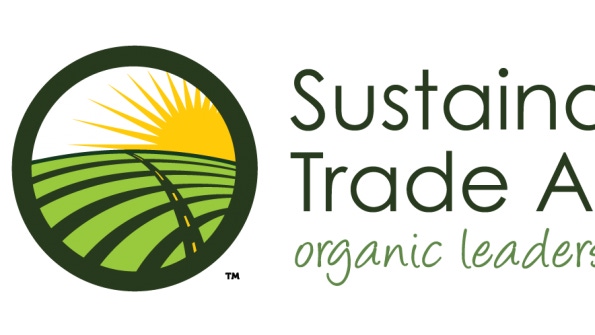New SFTA report finds that companies are increasingly recycling, reducing, reusing and rethinking how products move from farm to retail.
April 23, 2014

According to the Sustainable Food Trade Association’s (SFTA) second annual Member Sustainability Progress Report, the organic food industry is taking giant strides to reduce its footprint in 11 areas from farm to retail. Making organic operations more sustainable only makes sense given the rapidly growing rate of the $29 billion organic food industry.
The 64 SFTA member companies make a conscious decision to reduce the impact of their operations on the Earth in key areas they commit to in a “Declaration of Sustainability”: expanding organic offerings; reducing energy, waste, water use and their impact on climate change; improving animal husbandry; distribution/sourcing; and packaging practices; and addressing governance and employee relations. In addition, the SFTA members audit, analyze and report on their sustainability activities, and have been doing so since 2008.
“I am honored to work with the members who have made their operations so much more sustainable over very short periods of time,” stated Katherine DiMatteo, SFTA executive director. “What is particularly impressive is how in many cases, their use of Earth’s dwindling natural resources has declined even while their sales increased.”
Information in the SFTA 2014 Member Sustainability Progress Report contains aggregated data from 22 reports submitted by SFTA members in 2013 about their prior fiscal year’s activities. Findings include:
SFTA members have an overwhelming commitment to organic agriculture and food. In fact, 87 percent of the total product weight managed by reporting SFTA manufacturers and distributors is certified organic. This means that the reporting companies alone bought more than 1.5 billion pounds of organic food!
Use of renewable energy and efficiency is becoming ubiquitous in SFTA operational practices. Efficiency in building design, energy conservation and use of renewable energy resources are driving energy savings. Sixty-five percent of the electric energy used by reporting SFTA members is derived from renewable sources. All reporting members achieved energy savings through equipment efficiency upgrades.
Packaging reduction, elimination and transformation are priorities for everyone. All members have active goals and efforts in place to reduce the impact of packaging on the environment. As a result, reporting manufacturers and distributors eliminated over 175,000 pounds of packaging materials in 2012, and grocery retailers saved the use of over 3.3 million bags!
Reduction of waste is a major focus. Reporting SFTA members diverted an average of 71 percent of their waste from landfills; 40 percent of reporting members had a diversion rate of 80 percent or higher!
Worker health care is universal. Labor practices continue to be a quality hallmark for SFTA members. 100 percent of reporting members offer health care, and cover an impressive 94 percent of health care costs! In addition, 84 percent of employers offer 401(K) plans, and 55 percent offer profit sharing.
Community involvement continues to increase and contribute millions of dollars. Organic companies recognize the importance of community and giving. SFTA members increased total community donations in 2013 by a whopping 57 percent. This translates into over $6.9 million dedicated to communities.
SFTA member companies commit to reporting on their activities and dedicate considerable time to gather, then share, extensive information on their operations. They do this to determine where they can make changes themselves, to spread best practices to help reduce the organic food industry’s environmental footprint, and to increase their leadership role as stewards of the planet.”

You May Also Like


